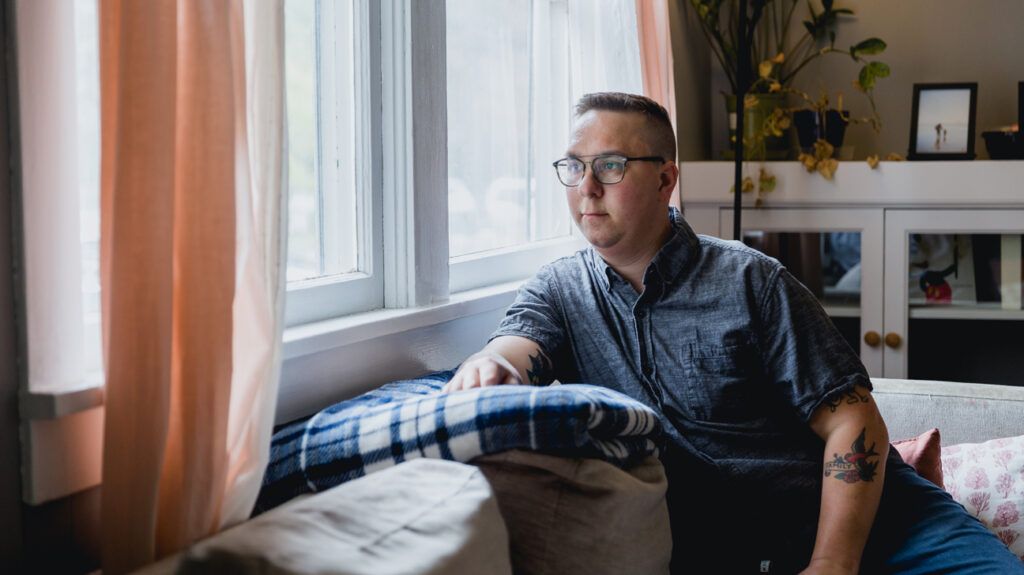Autistic people may have an increased likelihood of experiencing migraine. However, more research is necessary to understand why this might be.
Autism spectrum disorder (ASD) is a complex neurodevelopmental condition that affects people in various ways, influencing their social interactions, communication, and behavior.
This article looks at the connection between autism and migraine, examining the prevalence, potential causes, and avenues for seeking help.

Some research suggests a correlation between ASD and an increased likelihood of experiencing migraine.
For example, a
The study also showed a higher occurrence of epilepsy and seizures in autistic participants and confirmed a connection between migraine and epilepsy.
Some older research also points toward a possible prevalence of migraine in autistic children. In a
The connection between migraine and autism is unclear. However, researchers have studied several theories over the past few years, outlined in a
Some of those theories deal with pain sensitivity. For example, researchers once thought an excess of endogenous opioids explained a reduced pain sensitivity in autistic individuals.
However, later studies suggest autistic people may actually have a hypersensitivity to pain, meaning they may share heightened sensitivity to pain and sensory stimuli with others who experience migraine.
Additional theories about the connection between autism and migraine relate to:
- abnormal serotonin levels
- genetic factors, such as the mutation of genes associated with certain types of migraine and neurodevelopmental disorders
- dysregulated immune response systems, including neuroinflammation and mast cell involvement
- a dysfunctional gut-brain axis
These diverse theories provide insights into the intricate relationship between neurological, genetic, and immune factors in both autism and migraine, offering direction for future research and targeted interventions.
When a person lives with migraine — whether they are autistic or not — certain triggers can result in a migraine headache.
Not everyone has the same migraine triggers, and not every trigger will cause a migraine episode every time a person encounters it.
Understanding the specific triggers for migraine in each person is crucial for tailored intervention strategies.
Some common migraine triggers include:
- sensory-related triggers, such as light, sound, and smells
- certain foods or skipping meals
- stress
- hormones
- too much or too little sleep
- medications
- dehydration
- overexertion
Learn more with our guide to migraine triggers.
Can sensory sensitivities or anxiety cause migraine in autistic children?
Autistic individuals commonly have heightened reactions to things like light, sound, or touch due to sensory sensitivities.
The study included 81 autistic children ages 7–17 years old. Researchers found those who had migraine headaches also tended to experience more anxiety and sensory sensitivity symptoms than those who did not have migraine headaches.
Is there a connection between anxiety and migraine in autistic people?
There is a strong connection between anxiety and migraine, and anxiety often coexists with autism.
A
There are a variety of reasons autistic individuals may encounter heightened anxiety. For example, challenges in social interactions or changes in routine can lead to anxiety, which in turn may increase the likelihood of a migraine headache.
Treating migraine requires a comprehensive approach, ideally in collaboration with a qualified healthcare professional, such as a primary care doctor.
A doctor may talk with the person or their caregiver about treatment options, such as:
- identifying and avoiding triggers, such as loud noises or bright lights, whenever possible
- practicing relaxation techniques, such as deep breathing or meditation
- taking over-the-counter pain relievers, such as acetaminophen or ibuprofen
- taking prescription medications, like triptans or beta-blockers
- exploring alternative therapies, such as acupuncture or massage therapy
Open and collaborative communication with healthcare professionals is crucial for a safe and effective migraine treatment plan.
Learn more about 6 ways to cope with migraine.
Understanding migraine and headache symptoms is important for an autistic person or the parent of an autistic child, not only for treating symptoms but also for recognizing when to contact a doctor.
Consider seeking medical attention if migraine symptoms:
- become more frequent, painful, or severe
- significantly impair the person’s usual daily activities
- accompany other unusual symptoms, such as changes in vision, speech, or motor function
- become unmanageable or stop responding to the treatment plan
While more research into the link between autism and migraine is necessary, the two do appear to share a connection.
Recognizing that link can help customize interventions to address sensory sensitivities, anxiety, and other migraine triggers an autistic person may have.
